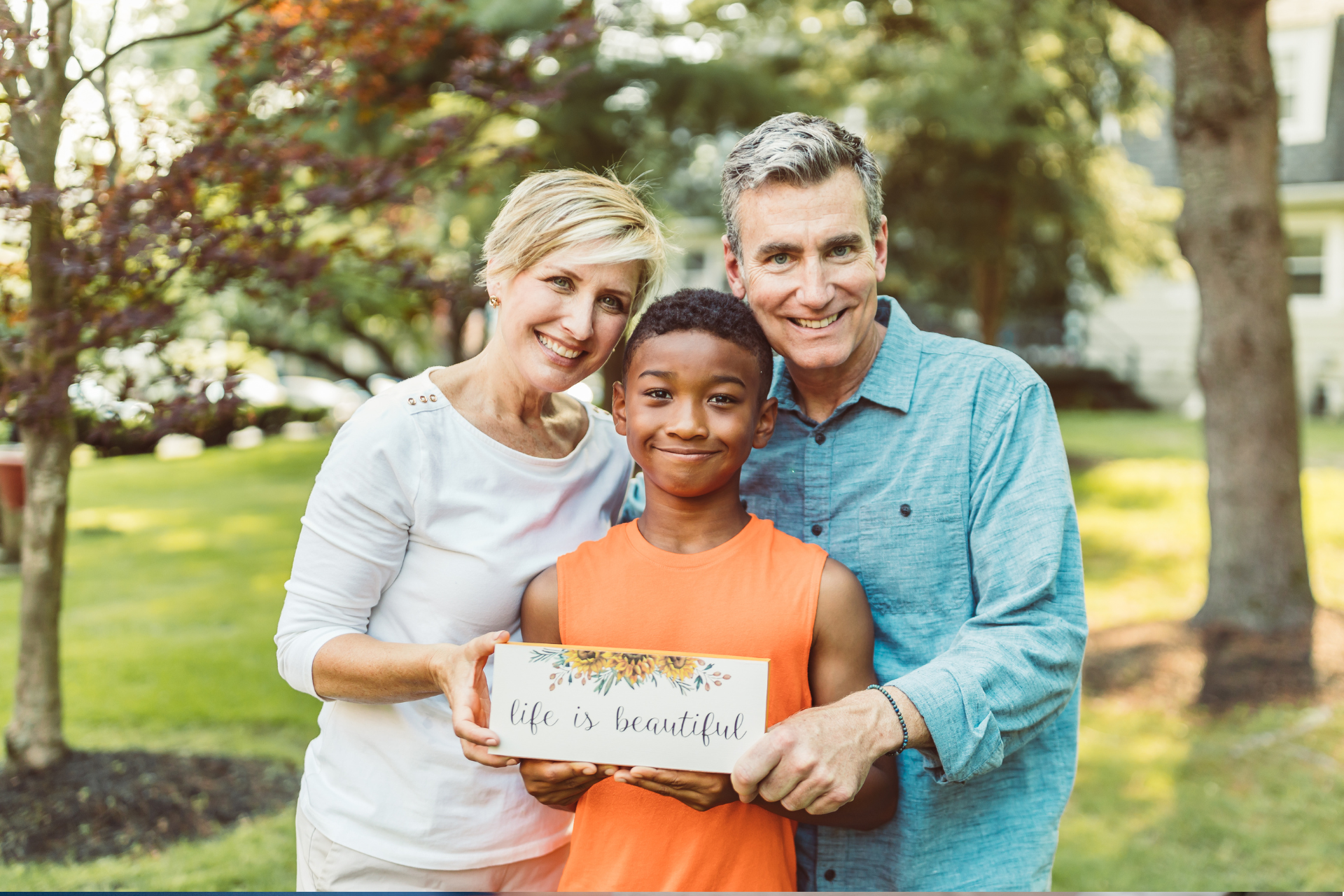Sticks and stones, the old saying goes, may break my bones, but words can never hurt me. We all probably know that that’s not true. But sometimes we may hear — or even say things that just come out wrong. During your adoption journey, you could have this experience. It can be tough to know what to say in response when someone asks you about your child’s “real parents.”
“What about your baby’s real parents?”
This insensitive question is not usually meant to be hurtful, but it is. The implication is that you are not the real parents, but some sort of artificial parents. You may know that the question is about the birth parents, but you don’t have to accept the implication. In fact, you’re doing the speaker a favor if you help them realize that what they’ve said is hurtful — that gives them a chance to avoid doing the same thing to someone else.
“Do you mean her birth parents?” you could ask. If you ask kindly, with a smile, you can make your point without escalating the situation into a quarrel. Then you can say how appreciative you are of the wonderful gift they have given you in the form of your child. If you want to share more information, you can, but it’s not necessary.
“Are you my real parents?”
Children say things they hear the adults around them say, so it shouldn’t be a surprise if your child asks you this kind of question, too. Tailor your answer to your child’s age and understanding. Young children might need a simple explanation like, “You grew in [birth mother’s] tummy, and she loved you very much, but she couldn’t raise you. So we got to be your forever family!”
Focus on love.Emphasize that both the birth parents and the adoptive parents love the child. You can say, “Your birth parents made a loving choice so you could have the life you have now with us.”
Acknowledge the birth parents with respectful language. Refer to the birth parents as “your birth mom/dad” or “your first family.” Avoid negative terms or portraying them as abandoning the child.
It’s natural for children to be curious about their biological roots. Let them know it’s okay to ask questions and express their feelings.

